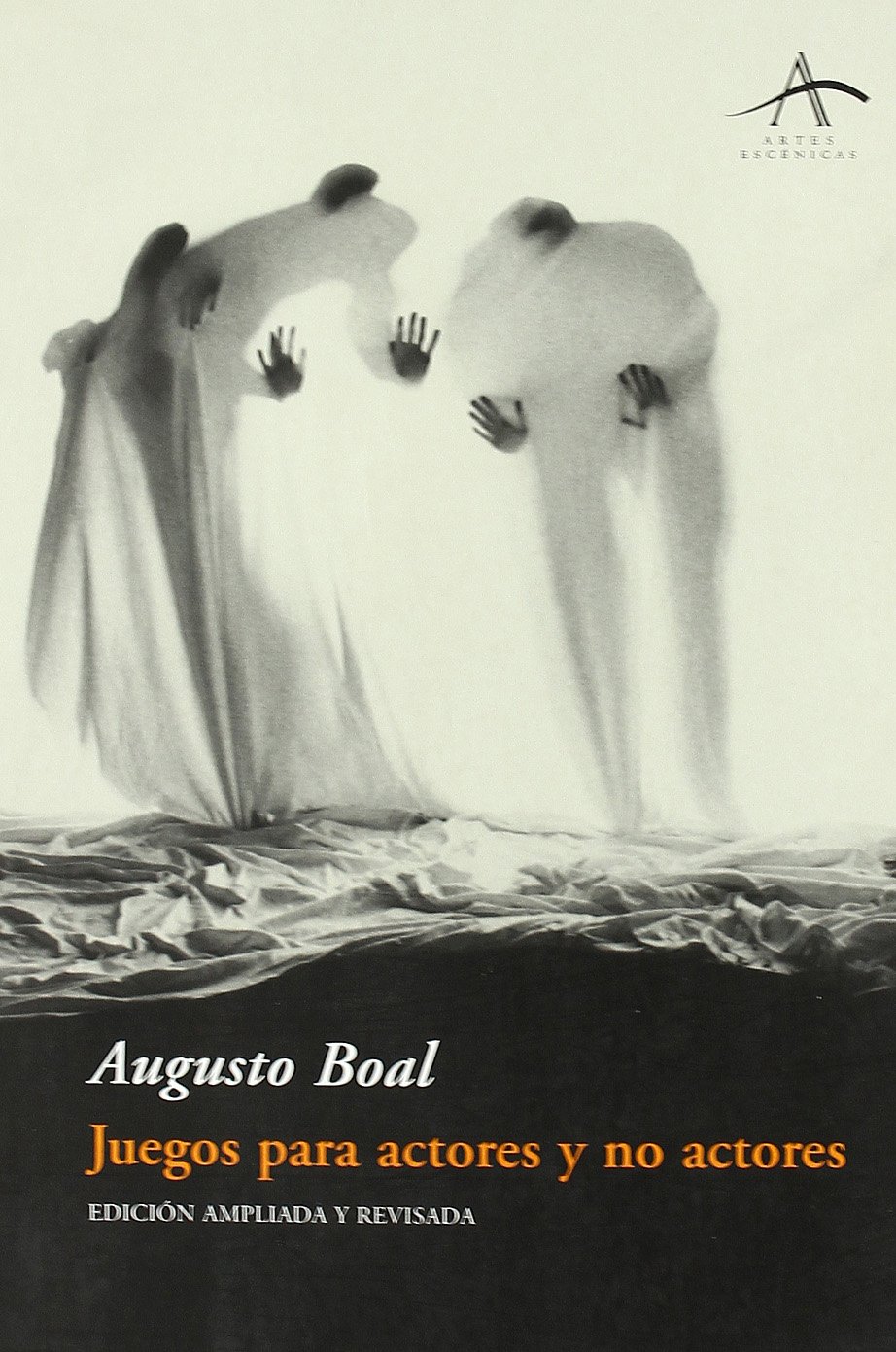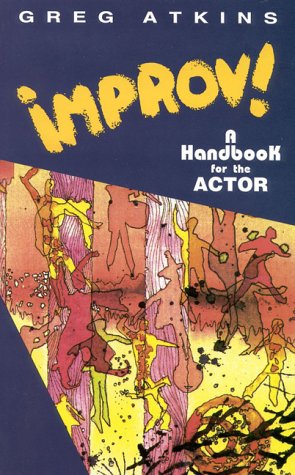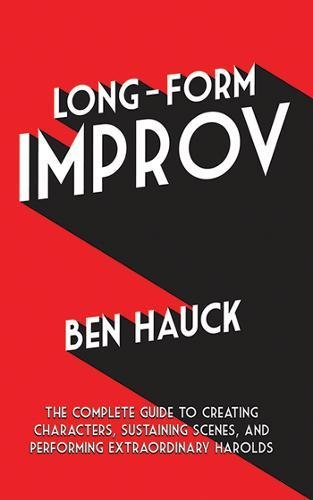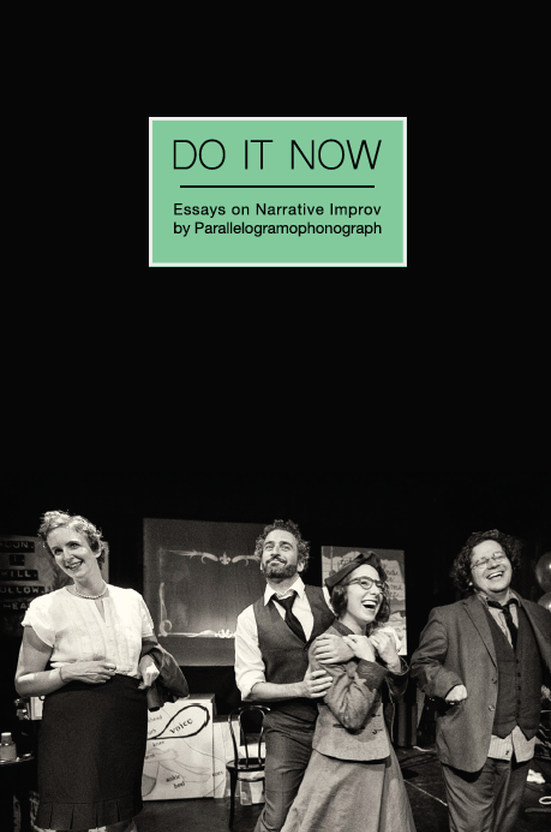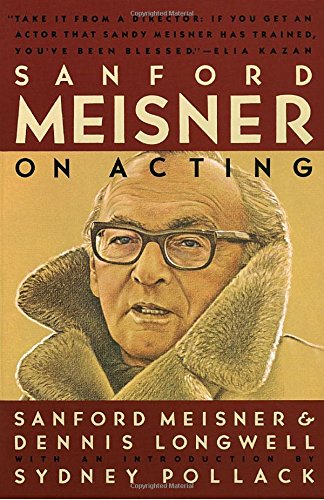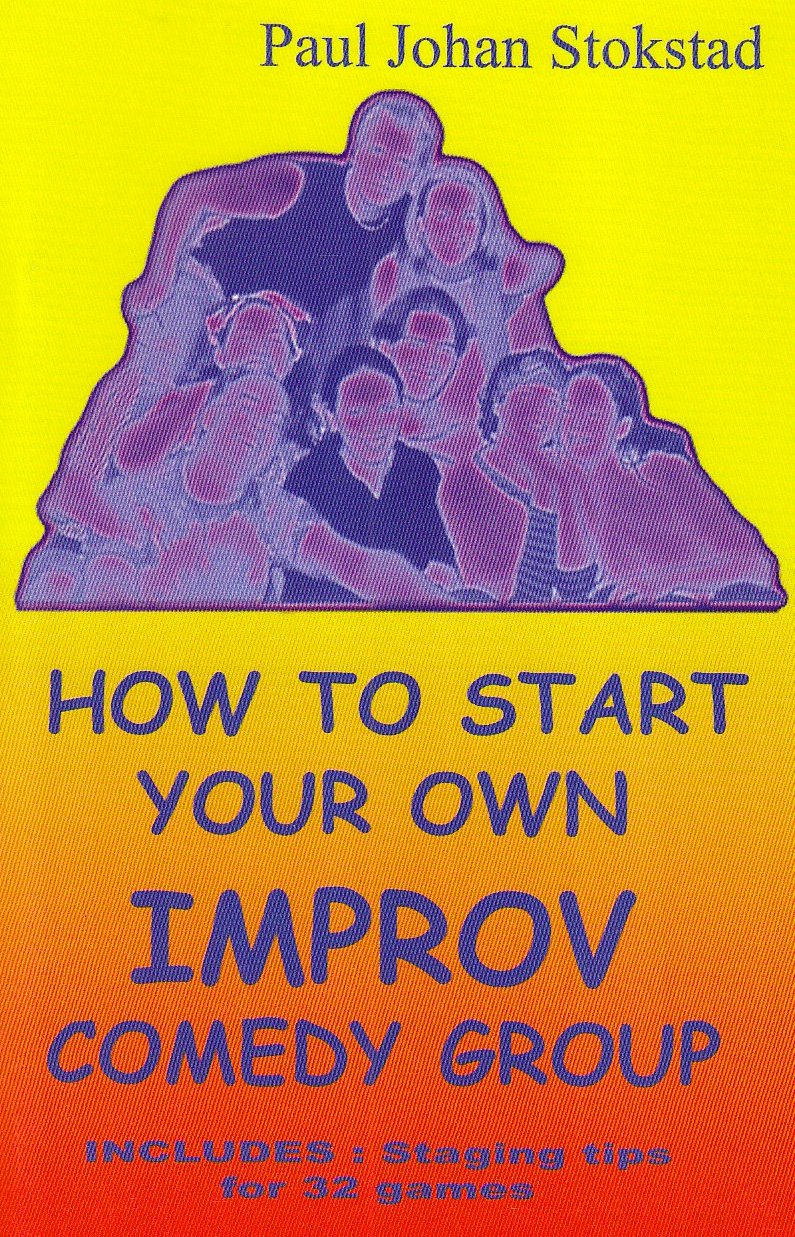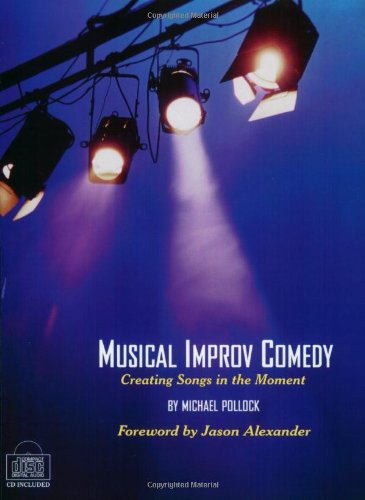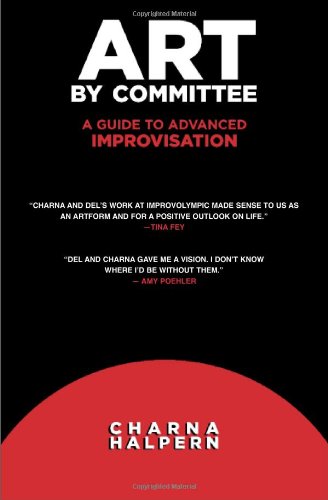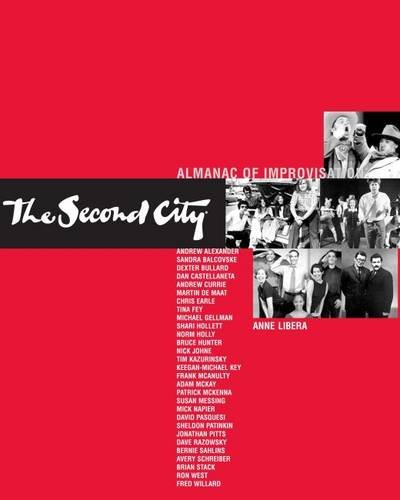Games for Actors and Non-Actors is the classic and bestselling book by the founder of Theatre of the Oppressed, Augusto Boal. It sets out the principles and practice of Boal’s revolutionary method, showing how theatre can be used to transform and liberate everyone – actors and non-actors alike! This new third English edition includes recently uncovered interviews and essays from the 1970s, some of which featured in the earliest Portuguese edition of this book, and a new essay by the theatre director Sergio de Carvalho, which looks at Boal’s work in the context of Brazilian theatre and politics over the past fifty years. This is a vital handbook for theatre makers and activists of all kinds who want to deepen their understanding of the theory and practice of Boal’s Theatre of the Oppressed. It is also an excellent introduction for those new to the system.
english
You’re an actor. You know you’re going to have to do it sometime, but the very thought chills your blood, makes your palms go sweaty, and your voice squeak. It’s improvisation – and for many actors it’s a nightmare. Greg Atkins, a member of South Coast Repertory and unabashed improviser, takes the fear out of improv. This friendly, informative book looks at the reasons many actors hate improvisation, while quietly reinforcing the reasons improv is a vital part of acting and of theatre. He offers sensible (and fun!) exercises that can be used by teachers or by actors, to build up the mental agility that is so much a part of improvisation, and that should be part of every actor’s arsenal.
Long-Form Improv: The Complete Guide to Creating Characters, Sustaining Scenes, and Performing Extraordinary Harolds (Ben Hauck) Long-Form Improv deftly teaches the wildly popular form of improvisation that is so foundational to the comedy stylings of many of today’s top actors and thriving comedians. Crammed with innovative ideas for conceptualizing improvised scencework and finding the game of the scene, this crisply written manual covers techniques for experienced improvisers, curious actors, and even non-actors.
When improv quartet Parallelogramophonograph (PGraph for short) embarked on their narrative improv journey in Austin, TX in 2005, they had no idea they were about to spend over a decade learning and discovering how to create fully improvised plays on the spot. This mini-book is filled with several short essays by members of PGraph – all on improv theories and techniques designed to help make narrative improv more fun, accessible, and attainable.
Sanford Meisner was one of the best known and beloved teachers of acting in the country. This book follows one of his acting classes for fifteen months, beginning with the most rudimentary exercises and ending with affecting and polished scenes from contemporary American plays. Written in collaboration with Dennis Longwell, it is essential reading for beginning and professional actors alike. Throughout these pages Meisner is a delight—always empathizing with his students and urging them onward, provoking emotion, laughter, and growing technical mastery from his charges. With an introduction by Sydney Pollack, director of Out of Africa and Tootsie, who worked with Meisner for five years. “This book should be read by anyone who wants to act or even appreciate what acting involves. Like Meisner’s way of teaching, it is the straight goods.”—Arthur Miller “If there is a key to good acting, this one is it, above all others. Actors, young and not so young, will find inspiration and excitement in this book.”—Gregory Peck
What if all the theatre books in the world taught people how to rehearse but not how to perform? Nothing on presentation. This odd situation exists in the genre of improv theatre books, where there are quite a few published tomes providing improv training, but nothing, really, on how to perform it in front of a live audience. This book gives all the tools that a reasonably competent adult would need to understand improv theatre, train others, form a performing group, and keep it together as long as possible. The unique element of this book is it’s focus not only on improv concepts and games but on practical guidelines for creating a viable performing group and staging improv games for live audiences. The book includes an extensive game list with staging comments.
Clear, everyday language explains each element of an improvised song. Simple building blocks are combined with playing tips to elevate a performer’s musical improvisation to its highest level. Masteryear Publishing is proud to offer MUSICAL IMPROVE COMEDY, the first book of its kind. It is used by students and professionals at The Second City Training Centers in Chicago and Los Angeles, and Disney Entertainment Productions. The instructional CD and Michael Pollock’s clear, friendly writing style make this a truly practical tool for improvisational players: a portable music workshop.
This sequel to the “improv bible” Truth in Comedy delves deeper into the mindset and history of improvisational theatre, and the accompanying DVD provides clear examples of these principles in action. The DVD includes performances by four influential improv groups: Upright Citizens Brigade (with Tina Fey and Amy Poehler), Beer Shark Mice (with Neil Flynn of Scrubs), Armando Diaz Theatrical Experience, and The Reckoning, along with additional short clips featuring Peter Hulne. The disc also contains interviews with many celebrity improv artists including Tina Fey, Rachel Dratch, Amy Poehler, Stephnie Weir, Tim Meadows, Andy Dick, and Adam McKay. The book expands on many of the ideas from Truth in Comedy as it explores the evolution of long-form improv into the New Harold and provides expanded thoughts on what makes improvisation effective. Readers also get an insider’s perspective of Del Close, who many consider to be the father of modern improv along with book author Charna Halpern, as together they established the famous iO theatres.
Ediciones Status presents “Impro: Dynamics of the Unexpected”, the first book by Feña Ortalli. A book that presents a series of ideas and concepts of improvisation explained through football analogies. In “Impro: Dynamics of the Unexpected”, Feña Ortalli takes us out onto the playing field without losing sight of the board. In a masterful way he immerses us in the history of the greats and allows us to get the ball rolling with our proposals.” Javier Pastor (Director of El Club de la Impro) Web
It all began in a converted Chinese laundry on Chicago’s north side on a cold December night in 1959. No one could have known that by the next century, The Second City would have established itself as the premier comedy institution in the world. Taking its act north, The Second City would build a second permanent home in Toronto where it would create the Emmy-Award winning television series “SCTV.” Pioneering the use of improvisation in developing talent and creating satiric revue comedy, The Second City has become – in the words of the New York Times – “A Comedy Empire.” The Second City Almanac of Improvisation – like the theatre itself – is a collection of diverse ideas, viewpoints, and memories, written by a vast array of teachers, actors, and directors who all got their start at the legendary comedy theatre. Fred Willard recalls his introduction to The Second City style in the mid-Sixties; Tim Kazurinsky gives a hilarious visual demonstration on the art of object work; “Saturday Night Live” star Tina Fey talks about re-improvising material as a mode of writing revue comedy; noted director Mick Napier takes on the thorny debate between long-form improvisation and short-form improvisation. Anne…
